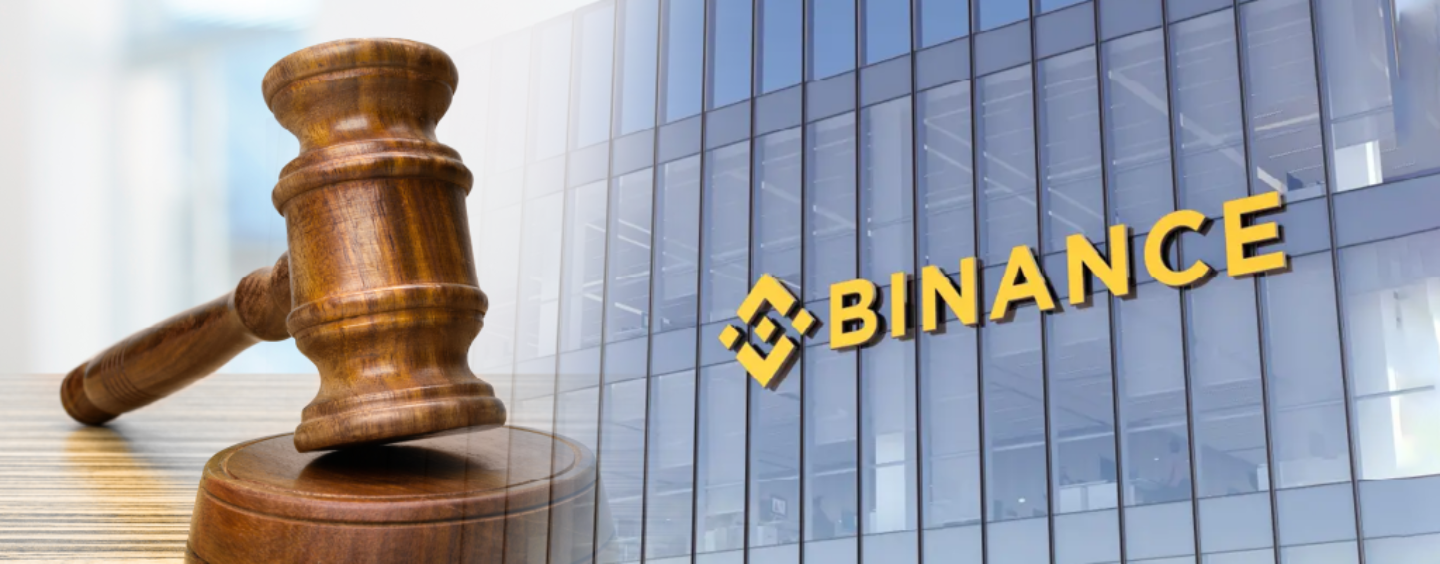Regulators are turning up the heat on the world’s largest cryptocurrency exchange, slamming Binance, its US-based affiliate and its founder with a new lawsuit. The move is the latest development in an industry-wide crackdown that has seen regulators clamp down harder on large crypto businesses in the aftermath of the FTX collapse.

image via Unsplash
The US Securities and Exchange Commission (SEC) filed a lawsuit against Binance earlier this month, alleging that the company violated a variety of securities laws by operating exchanges, broker-dealers, and clearing agencies without the proper licenses, and misrepresenting trading controls and oversight on its American platform Binance.US.
The US SEC also claims that Binance allowed for commingling of customer funds, that its founder, Changpeng Zhao, was running the business through a “web of deception,” “secretly” controlling Binance.US and that a Zhao-owned and operated entity was inflating Binance.US’s trading volume.
The 13 charges were filed against Binance; its US-based affiliate, BAM Trading Services, which, together with Binance, operates the crypto asset trading platform, Binance.US; and their founder, Zhao.
The US SEC followed the lawsuit up with a motion for the temporary restraining order freezing the US trading platform’s assets, a request which was ultimately rebuffed by the federal judge overseeing the case.
Binance has armed itself with top talent to fight the case, hiring a high-powered legal team that comprises George Canellos, an ex-SEC lawyer who served as co-director of the SEC’s Division of Enforcement, Adam Fee, a former federal prosecutor, as well as Andrew M. Leblanc, a bankruptcy expert.
Binance has been the focus of US regulators and law enforcement agencies in recent months. In March, the Commodity Futures Trading Commission (CFTC) accused the company and its founder of violating the Commodity Exchange Act (CEA) and several CFTC regulations, alleging that the “intentionally opaque” enterprise had chosen to “knowingly disregard applicable provisions of the CEA while engaging in a calculated strategy of regulatory arbitrage to their commercial benefit.”
Increased regulatory scrutiny
Binance’s legal woes have only worsen since FTX collapsed in November 2022, exposing some of the structural weaknesses of crypto exchanges and prompting regulators to step in to protect investors.
In May, Binance announced that it would exit the Canadian market, citing “new guidance related to stablecoins and investor limits.”
The company stated, “Unfortunately, today we are announcing that Binance will be joining other prominent crypto businesses in proactively withdrawing from the Canadian marketplace. We would like to thank those regulators who worked with us collaboratively to address the needs of Canadian users. Albeit a small market, it held sentimental value for us as the home country of our founder. We had high hopes for the rest of the Canadian blockchain industry.”
Days before this announcement, the Ontario Securities Commission launched an investigation into the company, as regulators seek to determine whether “Binance may have taken steps to circumvent Ontario securities law and compliance controls.”
That same month, documents released by Israel’s National Bureau for Counter Terror Financing (NBCTF) revealed that the agency had seized around 190 crypto accounts at Binance. Two of these accounts were said to be linked to Islamic State and while dozens of others were owned by Palestinian firms connected to the Islamist Hamas group.
In Europe, Binance is currently under review to deregister with the Cyprus Securities and Exchange Commission and pull out of the island. The company, which won registration in October 2022 to operate in the country as a crypto asset service provider, told media outlets this week that the company was pulling back on efforts in Cyprus to “focus on fewer regulated entities in the [European Union] EU, especially our larger registered markets where we already have a mature footprint, including France, Italy and Spain.”
However, Binance was compelled to exit the Netherlands due to a failed registration attempt. The company announced, “We regret to announce that Binance is leaving the Dutch market. This unfortunately means that no new users residing in the Netherlands will be accepted as of today. Starting from 17 July 2023, existing Dutch resident users will only be able to withdraw their assets from the Binance platform.”
The Dutch Central Bank previously imposed a fine on Binance for providing cryptocurrency services without the necessary registration from the monetary authority. In May 2020, the Dutch authorities established a ruling that mandated any company wishing to offer cryptocurrency services in the country to adhere to the regulations concerning anti-money laundering and the prevention of terrorism financing.
Reuters also reported that Binance will be investigated in France for money laundering.
Regarding this situation, a Binance representative stated, “In France, on-site visits by regulators and inspectors are part of regulatory obligations to which all financial institutions must adhere. We had an on-site visit last week by the relevant authorities. Binance, as always, was fully collaborative and we met our obligations accordingly. We continue to work closely with regulators and law enforcement agencies on all ongoing compliance requirements to uphold high standards.”
Despite these challenges, Binance maintains that it is preparing to be fully compliant with the Markets in Crypto-assets (MiCA) Regulation when it is implemented in the next 18 months.
The MiCA legislation, set to become law in 2024, will impose tighter rules relating to stablecoins, anti-money laundering (AML) and data security among others to digital assets firms operating in the EU.
Business partners left and right have also started cutting ties with the crypto exchange. In Australia, Binance announced last month that it would no longer facilitate AUD bank transfers using PayID “due to a decision made” by the third-party payment service provider. In another blow, the Australian Financial Review reported in May that Westpac had banned customers from transacting with Binance. The exchange halted Australian dollar (AUD) deposits and withdrawals by bank transfers in June.
In the UK, payment partner Paysafe said in March that it was facing intense regulatory pressure and was therefore ending its crypto deal with Binance.
And in the US, several of Binance.US’s payment partners indicated that they would pause US currency activity with it following the announcement of the SEC lawsuit, forcing the company to transition to a crypto-only exchange.
Binance.US avoids asset freeze
In light of these difficulties, Binance.US avoided a full asset freeze after reaching an agreement with the SEC. According to a court filing, Binance Holdings, BAM Management US, BAM Trading Services, and Zhao will repatriate Binance.US customer assets.
Binance.US is also prohibited from spending corporate assets for purposes other than covering the cost of running its business. US customers are permitted to redeem from the platform, as US Judge Amy Berman Jackson ordered in a Washington federal court.
The court decision effectively helped Binance.US avoid a shutdown of its exchange after the SEC had initially sought a total asset freeze. The company previously stated that such a move would damage not only its business but also its customers.
A spokesperson for Binance.US reassured that “user funds have been and always will be safe and secure on all Binance-affiliated platforms.” While they were “pleased” that the disagreement was resolved, they maintained that the call for an asset freeze was “entirely unwarranted.”
The SEC’s lawsuit against Binance came earlier this month over various alleged violations, including artificial inflation of trading volumes, diversion of customer funds, failure to restrict US customer access, avoidance of US federal securities law, and more.
Regulators around the world have ramped up scrutiny of crypto companies, going after a number of major exchanges including Kraken, Coinbase and Gemini.
Earlier this year, the US SEC sued Gemini and Kraken for breaking securities laws. Kraken eventually settled with the regulator, agreeing to pay a US$30 million fine and shutter its US crypto staking operation. Most recently, the agency sued Coinbase, charging the company also for the unregistered offer and sale of securities in connection with its staking-as-a-service program.
Featured image credit: Edited from freepik








No Comments so far
Jump into a conversationNo Comments Yet!
You can be the one to start a conversation.